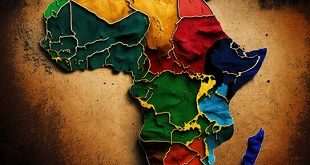
Afreximbank says China and India have consolidated their positions as the continent’s single largest trading partners
Kampala, Uganda | ISAAC KHISA | Africa’s output grew by 3.4 per cent between 2017 and 2018 despite the slowdown in global growth during that period, according to the African Export-Import Bank’s latest report.
The report dubbed ‘African Trade Report 2019: African Trade in a Digital World,’ launched on June 21 in Moscow, Russia, during the 26th Afreximbank Annual Meetings, shows that Africa’s total merchandise trade in 2018 had a value of over $997.9 billion, noting that the continent remained one of the fastest growing regions in the world.
World Trade Organisation estimates show that the volume of global merchandise trade grew by 3per cent in 2018, down from 4.6per cent in 2017.
The African Trade Report 2019 findings highlight the resilience of Africa’s economies to global volatility at a time of rising uncertainty, escalating trade wars and tariffs between the United States, China and others.
The resilience reflects the diversification of Africa’s trading partners in the context of South-South trade, growing fixed investment and public and private consumption, boosted by expanding urban populations and softening inflation. These factors reduce Africa’s exposure to the business cycles associated with individual countries and regions.
The report noted that while the European Union remained Africa’s main continental trading partner in 2018 – accounting for 29.8 per cent of total trade – African trade with the South grew significantly over the last decade to account for more than 35 per cent of the continent’s total trade in 2018.
China and India further consolidated their positions as Africa’s first and second single largest trading partners, accounting for over 21 per cent of total African trade in 2018. Intra-African trade also increased steadily in 2018, growing by 17per cent to reach $159 billion.
The report highlights that Africa has the potential to do more, noting that its contribution to global trade remains marginal at 2.6per cent, up from 2.4per cent in 2017, and that, while intra-African trade rose to 16per cent in 2018 from 5per cent in 1980, it remains low compared to intra-regional trade in Europe and Asia.
The report states that ongoing digitalisation is paving the way for a new African economy, with e-commerce platforms and internet penetration expediting transactions, reducing costs and leading to a new generation of transnational digital consumers.
The report urges African governments to further capitalise on the opportunities associated with digitalisation, by bolstering regulatory environments and supporting the development of digital ecosystems.
Digitalisation, the reports states, can unlock Africa’s potential in driving economic development and the integration of African countries into the world economy.
It can also reduce the region’s dependency on raw commodities and natural resources by helping economies diversify into more value-added products that can enhance extra-and intra-African trade.
This development comes as the continent prepares to usher in the Africa Continental Free Trade Area in Niamey, Niger, next month, a step that would open up market for trade for more than 1.2billion people.
Afreximbank President, Prof. Benedict Oramah, said: “It is vital that Africa grasps the economic growth opportunities flowing from the African Continental Free Trade Agreement, growing domestic demand and population and our ever-closer investment and trading links with emerging partners in the South.
We must exert concerted action to ensure that we develop, industrialize and diversify our industries and supporting infrastructure to foster regional integration and participate fully in regional and global value chains.”
Chief Economist and author of the report, Dr. Hippolyte Fofack said: “Intra-African trade, which grew by 17 per cent in 2018, more than three times the rate of growth of extra-African trade, was the major driver of Africa’s total merchandise trade in 2018.”
With a total asset base of US$13.4bn, the African Export-Import Bank is the foremost Pan-African multilateral financial institution devoted to financing and promoting intra- and extra-African trade.
The Bank was established in October 1993 by African governments, African private and institutional investors, and non-African investors. Its two basic constitutive documents are the Establishment Agreement, which gives it the status of an international organization, and the Charter, which governs its corporate structure and operations.
Since 1994, it has approved more than $67 billion in credit facilities for African businesses, including $7.2 billion in 2018.
****
 The Independent Uganda: You get the Truth we Pay the Price
The Independent Uganda: You get the Truth we Pay the Price



